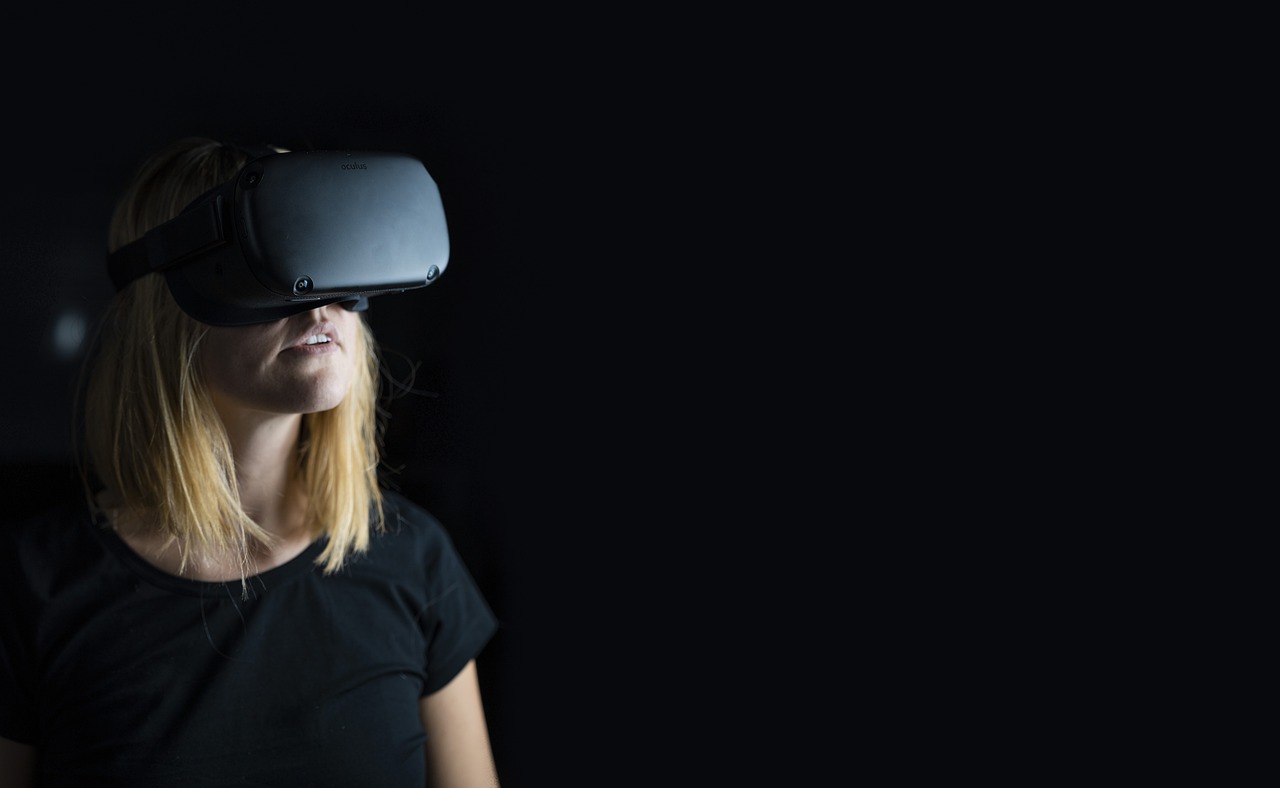Standards and protocols for the metaverse need to be agreed now - to protect the safety and security of users in the future, according to one leading expert.
The metaverse - an immersive virtual world connecting countless digital spaces – has moved a step closer to reality after Facebook’s Mark Zuckerberg announced plans to make the concept one of its key priorities.
While some critics are sceptical about just how revolutionary the metaverse might prove, Dr David Reid - Professor of AI and Spatial Computing at Liverpool Hope University - is adamant it’ll change all of our lives immeasurably, in the same way the Internet did.
.jpg)
Yet he also suggests that as well as providing great benefits it also poses ‘terrifying dangers’.
And he’s now calling for urgent conversations to begin in earnest concerning how to police the metaverse - before the technology becomes a reality in the next five to ten years.
Professor Reid, of Hope’s Department of Mathematics, Computer Science and Engineering, argues: “The metaverse has huge implications - it comes with fantastic advantages and terrifying dangers.
“And we need a highly robust system in place to police the metaverse. We’re clearly in the very early stages of the metaverse but we need to start talking about these problems now before we go down a route we can’t reverse away from. It’s crucial for the future.”

The risks posed by the metaverse, according to Professor Reid, centre on the gathering and protection of data. And if you think the metaverse is just a flash in the pan, think again.
Professor Reid says: “People have been talking about how the rise of Artificial Intelligence (AI) will significantly change society and everything we do. And that’s true. But the metaverse is at least as big, if not bigger, than the rise of AI.
“Because if you think about the way it works, the metaverse’s ultimate aim is not just virtual reality, or augmented reality, it’s mixed reality (MR). It’s blending the digital and the real world together. Ultimately this blend may be so good, and so pervasive, that the virtual and the real become indistinguishable. And the market for that is gigantic. Whoever controls it, will basically have control over your entire reality.
“Many current MR prototype systems have face, eye, body and hand tracking tech. Most have sophisticated cameras. Some even incorporate Electroencephalogram (EEG) technology in order to pick up brainwave patterns. In other words everything you say, manipulate, look at, or even think about can be monitored in MR. The data this will generate will be vast…..and extremely valuable.
“And that’s why we need a system in place to police it. No single company should ever exert control - it’s simply too important for that to happen.
“It has to be a collaboration, using open standard protocols, where a standard is freely available to be adopted and shared by others, in the same way that the World Wide Web (WWW) evolved.”

Professor Reid points to the fact that the Internet has the World Wide Web Consortium (W3C), influenced by Web founder Sir Tim Berners-Lee’s attitude of openness.
The metaverse, Professor Reid claims, needs its own dedicated equivalent - and it needs one in a hurry.
He says: “The W3C encourages participation, the sharing of knowledge, and thereby it builds trust on a global scale. This influences the way the Internet functions. It’s not a business, it’s not a government, it’s an independent organisation that takes care of standards.
“The metaverse needs the equivalent of the W3C and these conversations need to happen right now - because every single tech company I know of sees this as part of its future.”
Acting now also gives the world a fighting chance of getting to grips with security risks in the metaverse, as well as the threat of bullying or social media pile-ons in this mixed reality universe.
Professor Reid adds: “If you think about the amount of data a company could collect on the WWW right now, compared to what it could collect with the metaverse, there is just no comparison.
“But consider this; If you have your avatar in the virtual world, do you own it? Do you really own the way you look? Could you hijack someone’s avatar and appear as someone else? How do you know you’re really talking to the person you think you’re talking to? It happens now on the internet and the threat will be much greater with the metaverse. You’ll be able to own things and have possessions in the metaverse - how do you protect them?
“People are worried about the influence that Twitter can have on politics right now. But in a completely immersive environment, how much more influence can you have on someone, when you can transport someone to a war zone and show them precisely what’s going on? “Likewise, how much more dangerous might social media pile-ons, or online bullying, become in the metaverse? I’d argue it has the potential to be far, far more extreme. The visceral experience of immersion can be exceptionally emotive."
In the short term, Professor Reid says there are three technological barriers to the metaverse becoming a reality - and that’s the latency, bandwidth and resilience of the network itself. But he says all of these can be overcome.
He reveals: “When you’re dealing with 3D models and virtual avatars, you’re dealing with a hell of a lot of information. So, yes, infrastructure in the UK will need to improve to meet demands.
“But things will improve. I don’t see the infrastructure being a real problem, given another 10-15 years of development, to have a metaverse where it’s impossible to distinguish virtual reality from actual reality.
“The primitive nuts and bolts are already in place, the current generation of browsers are able to transmit VR content.”

You should also not underestimate just how important the metaverse will be, according to Prof. Reid - who is speaking from experience.
Back in 1994, at the dawn of the World Wide Web, he was conducting research into AI and how to incorporate it into the Internet - years before Google did similar things.
In 1998 he also created the UK’s first ever online shopping mall - and only the second the world had ever seen - the ‘MerseyMall’.
He adds: “Back then, you had the same type of feeling towards the Internet that we’re now seeing with the metaverse. No-one could envision what the Internet could really be used for, as they said, ‘Why would I even want to shop online?’ store owners told us, ‘Nobody will even be on the Internet?’
“Some think that virtual reality (VR) is just a fad, and that it has been tried before and failed. But that denies the unprecedented effort big tech is putting into making this work. As Athur C Clarke said, ‘The only thing we can be sure about the future is that it will be nothing like the past’.
“And, for me, the metaverse is more than just the next evolution of the Internet. Some are calling it the ‘embodied Internet’, the ‘spacial Internet’ or the ‘immersive Internet’. But it’s more than just that.
“I think it’s the next computing platform. It’s not a white elephant. It’s the next evolutionary step, not just for the Internet, but for computing as a whole. Also, nobody knows just how many jobs the metaverse will create but it’ll spawn an entire new industry. And, of course, for all the drawbacks there will be huge benefits.
“For me, it could even be the way the country finally ‘levels up’. If you can commute virtually you don’t need to live in London. You don’t need to be physically located anywhere. The Northern Powerhouse should be based around VR and AI because these are two technologies where you can actually level up, because location doesn’t matter, providing you’ve got enough bandwidth.”



